As an avid scuba diver and ocean enthusiast, I know firsthand the beauty and wonder of marine life. However, there are potential dangers lurking beneath the surface, including the lionfish, a venomous species that can cause painful stings to humans. In this comprehensive guide, I will provide you with important information on lionfish stings, including their symptoms, available treatments, and prevention methods. Whether you are a seasoned diver, beachgoer, or simply curious about these fascinating creatures, this guide is your go-to resource for staying safe and informed.
Table of Contents
Key Takeaways:
- Lionfish stings can cause intense pain, swelling, and potential allergic reactions.
- Immediate first aid for lionfish stings includes cleaning the wound and applying hot water.
- Medical interventions, such as antivenom therapy, may be necessary for severe lionfish stings.
- Preventive measures, such as proper handling techniques and protective gear, can minimize the risk of lionfish stings.
- Lionfish invasions have an adverse effect on marine ecosystems, and managing their population growth is crucial for preserving biodiversity.
Understanding Lionfish Stings
When it comes to lionfish, their stunning looks can be deceiving. These creatures are equipped with venomous spines that can cause a painful sting and even envenomation. Lionfish venom is a potent and complex chemical cocktail that can vary in composition and intensity depending on the species and the location.
Envenomation occurs when the venom enters the bloodstream through the spines, and it can lead to severe symptoms that range from nausea, vomiting, and dizziness to respiratory distress and even paralysis in some cases. It’s essential to understand the nature of lionfish venom to prevent stings and respond promptly when accidents happen.
Aside from the physical effects, lionfish stings can also have a significant impact on mental and emotional health. The fear and anxiety that follow a sting or a close encounter with lionfish can affect one’s enjoyment of aquatic activities and even discourage people from exploring the beauty of the underwater world.
| Lionfish venom | Snake venom | Spider venom | |
|---|---|---|---|
| Composition | Complex chemical mixture containing proteins, enzymes, and neurotransmitters | Complex mixture of proteins and enzymes | Complex mixture of neurotoxins and enzymes |
| Potency | Can cause mild to severe symptoms that range from local pain and swelling to systemic toxicity | Can cause mild to severe symptoms that range from local pain and swelling to systemic toxicity | Can cause mild to severe symptoms that include local pain, swelling, and systemic toxicity |
| Treatment | May require medical interventions such as anti-venom therapy and pain management | May require medical interventions such as anti-venom therapy and pain management | May require medical interventions such as antihistamines and pain management |
Table: Lionfish Venom vs. Other Types of Venom
Understanding the properties and effects of lionfish venom is vital for preventing stings and preparing for prompt and effective first aid. Stay tuned to learn more about the symptoms of lionfish stings and the best ways to respond when they occur.
Recognizing Symptoms of Lionfish Sting
If you suspect you’ve been stung by a lionfish, it’s essential to be able to recognize the symptoms associated with their venomous spines. The severity of symptoms can vary depending on the location and depth of the sting, as well as a person’s individual sensitivity to the venom.
Common symptoms of a lionfish sting include:
| Symptom | Description |
|---|---|
| Intense pain | The most immediate and intense symptom is usually severe pain at the site of the sting. This can last for several hours and may radiate to other areas of the body. |
| Swelling | Lionfish venom can cause swelling and redness around the sting site, which may persist for several days. In some cases, the affected limb or area may become swollen and feel heavy or numb. |
| Redness and warmth | The sting area may become red and warm to the touch due to an inflammatory reaction, which can also cause a fever in some cases. |
| Allergic reactions | Some people may experience an allergic reaction to lionfish venom, which can cause symptoms such as difficulty breathing, hives, or anaphylaxis in severe cases. |
If you experience any of these symptoms after a potential lionfish sting, seek medical attention right away. Keep in mind that symptoms can take several hours to appear, so monitor the affected area closely and take action if you notice any changes.
Immediate First Aid for Lionfish Stings
If you have been stung by a lionfish, it is crucial to take immediate action to minimize the effects of venom. Here are the steps you should follow:
- Remove any visible spines or tentacles from the wound using sterilized tweezers or a clean cloth.
- Wash the affected area with soap and clean water to prevent an infection from developing.
- Apply hot water – as hot as the affected person can withstand – to the wound for 30 to 90 minutes. This will minimize the pain and inactivate the lionfish venom.
- Take over-the-counter pain medication such as ibuprofen or acetaminophen to relieve the pain and inflammation.
- Observe for any signs of allergic reactions such as rash, difficulty breathing or swallowing, or swelling of the face, mouth, or throat. Seek medical attention immediately if any of these symptoms occur.
It is important to note that immediate first aid is not a substitute for professional medical treatment. Even if the symptoms are mild, seek medical attention as soon as possible if the pain or other symptoms persist, or if the wound becomes infected.
Remember to always wear protective clothing when handling lionfish, such as gloves and long-sleeved shirts, to prevent stings from occurring in the first place.
Available Treatments for Lionfish Stings
If you’ve been stung by a lionfish, it is essential to seek medical attention immediately. The severity of the sting depends on the amount of venom injected and the individual’s allergic response. Treatment options for lionfish stings vary depending on the extent of the injury, location of the sting, and the patient’s overall health.
For mild lionfish stings, first-aid measures such as hot water immersion and pain relief medication may be sufficient. However, for severe or prolonged symptoms, hospitalization and more intensive treatment may be necessary.
| Treatment | Description |
|---|---|
| Hot Water Immersion | Immersion of the affected area in hot water (45°C/113°F) for 30-90 minutes can help neutralize the toxins from the lionfish venom. |
| Pain Relief Medication | Over-the-counter pain relief medication, such as acetaminophen and ibuprofen, can help alleviate pain and inflammation associated with a lionfish sting. |
| Antivenom Therapy | Antivenom therapy may be necessary for severe or persistent symptoms. Antivenom is created by injecting a small amount of lionfish venom into an animal, then collecting the antibodies that the animal produces and purifying them for medical use. |
| Surgery | Surgery may be required in rare cases of severe lionfish sting injuries that result in tissue damage, necrosis, and infection. |
It is crucial to note that antivenom therapy is not available in all medical facilities. So, it is advisable to seek medical attention from a hospital or medical center that specializes in treating marine animal injuries.
Managing Lionfish Sting at Home
If you’re not able to get medical attention immediately after a lionfish sting or if the symptoms are mild, there are several effective home remedies and self-care practices you can use to alleviate pain and promote healing.
Clean the Wound
The first step in treating a lionfish sting is to clean the wound thoroughly with warm soapy water to remove any debris or bacteria. This can help prevent infection and promote faster healing. Be sure to gently pat the wound dry with a clean towel afterwards.
Apply Heat
Applying heat to the affected area can also help relieve pain and reduce inflammation. Use a clean towel or washcloth soaked in warm water and apply it to the wound for 20-30 minutes at a time. You can repeat this several times a day as needed.
Note: Avoid using ice or very hot water, as this can worsen the pain and cause further tissue damage.
Take Pain Relievers
If the pain is severe, you can take over-the-counter pain relievers such as acetaminophen or ibuprofen. Always follow the recommended dosage and consult a healthcare provider if you have any underlying medical conditions or concerns.
Monitor for Infection
It’s essential to keep an eye on the wound for the next few days and look out for signs of infection, such as redness, swelling, and pus. If you notice any of these symptoms or if the pain persists or worsens, seek medical attention immediately.
Remember that while home remedies and self-care practices can be helpful in managing lionfish stings, they do not replace professional medical treatment. If you experience severe symptoms or are unsure how to treat the wound, seek medical attention right away.
Dealing with Lionfish Spine Injuries
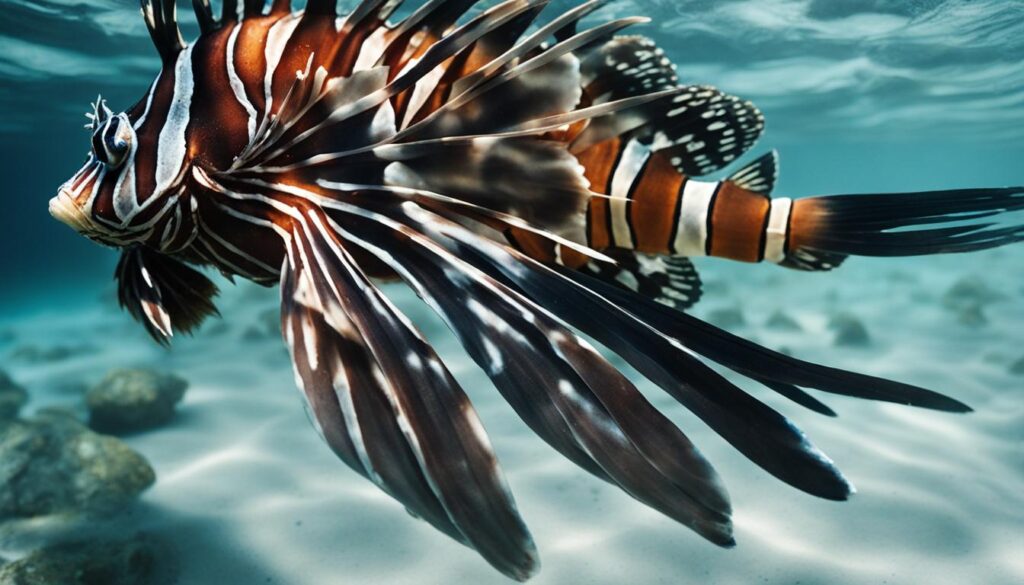
If you experience a lionfish spine injury, it’s crucial to seek medical attention promptly. If left untreated, complications such as infection, nerve damage, and tissue death may occur.
The severity of the injury depends on several factors, including the size of the fish, depth of penetration, and location of the wound. If the injury is on or near a joint, it may cause limited mobility and require specialized medical attention.
When seeking medical attention for a lionfish spine injury, it’s helpful to provide a detailed description of the incident and the symptoms you are experiencing. This information can assist medical professionals in determining the appropriate treatment, which may include wound cleaning, pain management, and antibiotics.
It’s important to note that attempting to remove the spine yourself may cause further injury and increase the risk of complications. Additionally, applying pressure or attempting to “suck out” the venom can exacerbate the effects of the venom. Seek professional medical attention immediately to receive safe and effective treatment.
Long-Term Care and Recovery after a Lionfish Sting
If you’ve recently been stung by a lionfish, it’s essential to care for the wound properly to avoid long-term complications. Here are some crucial steps for wound management and infection prevention during the recovery process:
- Monitor the wound daily for signs of infection, such as redness, warmth, and pus. Seek medical attention immediately if these symptoms occur.
- Clean the wound thoroughly with soap and water, then apply a topical antibiotic ointment to prevent infections.
- Cover the wound with a sterile bandage to keep it clean and dry, changing it daily or as needed.
- Take over-the-counter pain relievers, such as acetaminophen or ibuprofen, to manage any discomfort or inflammation.
- Apply a warm compress to the wound for 10-15 minutes, 2-3 times a day, to improve circulation and promote healing. Be sure the water temperature is comfortable but not too hot.
When to Seek Medical Attention
If you experience persistent pain, swelling, or signs of infection despite proper wound care, it may be necessary to seek medical attention. In some cases, complications such as secondary infections or nerve damage may occur, requiring more intensive treatments. Always consult with a healthcare professional for guidance and follow-up care.
Remember, prevention is the best strategy when it comes to lionfish stings. By taking proper precautions and avoiding direct contact with these venomous creatures, you can reduce the risk of stings and protect your health.
Preventing Lionfish Stings
As much as we want to avoid getting stung, we should also prioritize the safety and protection of lionfish. Here are some preventive measures that we can implement:
- Be informed – Know the habits and preferred locations of lionfish. Avoid getting too close to their habitat, especially during mating and spawning seasons.
- Handle with care – If you encounter a lionfish, do not touch, disturb, or corner it. Maintain a safe distance and observe from a distance.
- Protective gear – If you are diving or snorkeling near lionfish territory, wear appropriate protective gear such as gloves and boots. This can reduce the risk of accidental contact with lionfish spines.
- Proper handling and disposal – In case you catch a lionfish, make sure to handle it with care and use appropriate tools such as lionfish spears or nets. Do not attempt to remove the spines without proper training or equipment. Dispose of the dead lionfish properly.
- Reporting sightings – If you see any lionfish in the wild, report your sighting to local authorities. This can help monitor their population and prevent further spread.
Prevention is always better than cure, and taking these simple steps can go a long way in avoiding the risk of a lionfish sting.
The Environmental Impact of Lionfish
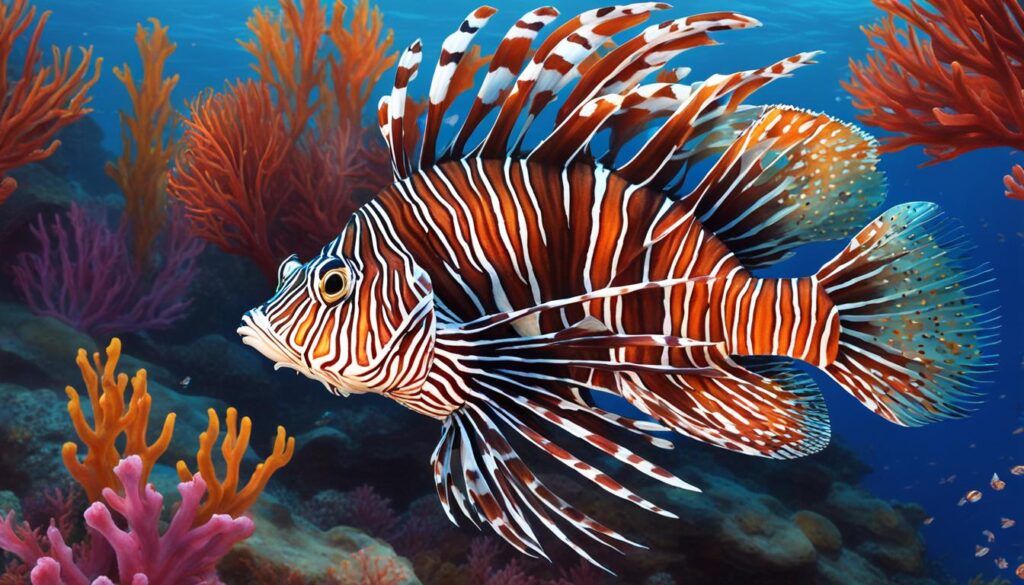
As an invasive species, lionfish pose a significant threat to marine ecosystems in the Atlantic, particularly in the Caribbean and Gulf of Mexico regions. Their rapid population growth and predatory behavior jeopardize the delicate balance of coral reefs, small fish, and other marine life.
Their presence reduces biodiversity and can even lead to the extinction of certain species. Lionfish consume up to 30 times their stomach volume and can easily eat juvenile fish, which hinders the growth rate of the surviving species. Furthermore, their behavior disrupts the feeding and breeding patterns of the native fish species.
Efforts to manage the lionfish population include encouraging human consumption as a method of control. This approach aims to reduce the population size and alleviate the demand for native fish species. Governments also regulate the sale of lionfish and promote lionfish hunting.”
“It is essential to maintain a healthy marine ecosystem by addressing the lionfish invasion aggressively. Conserving these ecosystems helps to secure the continued wellbeing of both the fish species and human communities that depend on them.
Lionfish Sting Myth Debunked
There are many misconceptions circulating about lionfish stings, and it’s important to separate fact from fiction. Contrary to popular belief, urine, vinegar, and other household remedies are not effective treatments for lionfish stings. These substances can even exacerbate the symptoms and increase the risk of infection.
“One of the biggest myths about lionfish stings is that you should pee on the sting to relieve the pain. This is entirely untrue and can actually make the symptoms worse.”
Your best course of action in the event of a lionfish sting is to seek immediate medical attention and follow appropriate first aid measures, such as soaking the affected area in hot water. Remember that prevention is key, so always exercise caution when swimming or diving in areas where lionfish are present.
Conclusion
As we have seen, lionfish stings can be a painful and potentially dangerous experience. It is essential to understand the nature of lionfish venom, the symptoms of a sting, and the necessary steps for prompt and effective treatment. Proper care and wound management are crucial for preventing infections and promoting healing.
In addition to proper care, responsible handling and lionfish sting prevention methods are critical to ensuring your safety and the protection of marine ecosystems. By taking proactive measures such as using protective gear, avoiding direct contact, and reporting sightings of lionfish, we can minimize the risk of stings and help manage their population growth.
Finally, it is vital to dispel any myths and misconceptions surrounding lionfish stings and educate ourselves and others about this potential danger. By doing so, we can promote safe and responsible interactions with these captivating creatures while preserving the delicately balanced marine environment.
FAQ
What are the symptoms of a lionfish sting?
The symptoms of a lionfish sting may include intense pain, swelling, redness, and potential allergic reactions. In some cases, individuals may also experience nausea, dizziness, and difficulty breathing.
How should I administer first aid for a lionfish sting?
Immediate first aid for a lionfish sting involves cleaning the wound with soap and water, applying hot water (but not scalding) to the affected area for at least 30 minutes to help alleviate pain, and seeking medical attention if necessary.
What are the available treatments for a lionfish sting?
Medical treatments for a lionfish sting may include pain medications, topical creams, and in severe cases, antivenom therapy. It is important to consult with a healthcare professional for appropriate treatment based on the severity of the sting.
Can I manage a lionfish sting at home?
While immediate first aid for a lionfish sting can be administered at home, it is recommended to seek medical attention for proper evaluation and guidance. Home remedies such as applying vinegar, baking soda paste, or over-the-counter pain relievers may provide temporary relief.
What should I do if I sustain a lionfish spine injury?
If you sustain a lionfish spine injury, it is crucial to seek immediate medical attention. The healthcare professionals will evaluate the extent of the injury and provide appropriate treatment, which may include spine removal and wound management.
How can I prevent lionfish stings?
To prevent lionfish stings, it is recommended to avoid touching or handling lionfish unless you are trained and equipped with protective gear. Be cautious when swimming or diving in lionfish-infested areas and maintain a safe distance from these venomous fish.
What is the environmental impact of lionfish?
Lionfish have a significant environmental impact as they are invasive species in many marine ecosystems. Their rapid reproduction and voracious appetite can disrupt the ecological balance by depleting native fish populations.
Are there any myths surrounding lionfish stings?
Yes, there are some myths surrounding lionfish stings, such as the belief that urine can alleviate the pain or that lionfish only attack if provoked. It is important to rely on accurate information when it comes to lionfish stings to ensure proper care and treatment.
References
Please check other articles on this website, I have listed some of them here:
Everything You Need to Know About Caring for Blue Zebra Cichlids in Your Aquarium
Everything You Need to Know About Torch Coral: A Stunning Addition to Your Marine Aquarium
The Fascinating Penguin Tetra: Thayeria boehlkei (2023-24)
The Ultimate Guide to Scarlet Badis Care and Breeding
The Ultimate Bamboo Shrimp | Flower Shrimp Guide Which You Dont Want to Miss Out 2023
The Vibrant and Captivating Strawberry Peacock Cichlid: A Guide to Care and Maintenance
Electric Blue Acara: The Ultimate Guide To Care And Keeping
Best Fish for a 40 Gallon Tank: Top Choices for a Thriving Aquarium
Simple Guide to Easy-to-Care-for Aquarium Plants
Discover the Diverse Corydoras Catfish Varieties- A Guide
Get to Know Various Types of Algae Eaters
Master Guide: Best Water Parameters for Goldfish Care 2023-24
Mastering Black Ghost Knife Fish Care: A Comprehensive Guide
Optimal pH Levels for Tropical Fish: Essential Aquarium Guide
Discovering Freshwater Snail Species: An In-depth Guide
Expert Tips for Breeding Guppies: Keys to Successful Fishkeeping
Discover Peaceful Community Fish: Your Guide to Calm Aquatics
Ultimate Guide to Live Food for Betta Fish — Healthy Choices
Complete Guide to Your Perfect Cichlid Tank Setup
Your Guide to the Best Substrate for Planted Aquariums
Essential Guide to Discus Fish Care: Help Your Pets Thrive!
Grow Your Own Eden: Beginner-Friendly Aquascaping Plants Guide
Perfect Neon Tetra Tank Mates: Guide to Aquarium Harmony
Product Review of Eheim Classic vs Professional
The Ultimate Guide to Discus Fish Care
What Fish Can Live With Discus?
Ideal pH for Discus Fish | Aquarium Water Guide
How to Sex Discus Fish?: A Simple Guide for Hobbyists
Complete Discus Fish Tank Setup Guide
Can Discus Fish Live With Angelfish? The Complete Guide
Discus Diet Guide: What Do Discus Fish Eat?
Are Discus Fish Hard to Keep? Insights & Tips.
Optimal Discus Fish Water Parameters Guide
Discus Fish Size Guide 2024: How Big Do Discus Fish Get?
Ultimate Million Fish Guppy Care Guide 2024
Simple Guide to Easy-to-Care-for Aquarium Plants
Grow Your Own Eden: Beginner-Friendly Aquascaping Plants Guide
Hornwort Aquarium Plants: The Ultimate Guide to Care and Maintenance
Aquarium Equipment for Beginners: The Complete Checklist
Feeding Your Aquarium Fish: The Complete Guide
Common Beginner Fishkeeping Mistakes and How to Avoid Them!
Aquarium Plants for Beginners: Easy Care and Beautiful Options
Keeping Your Aquarium Water Clean and Healthy: The Complete Guide
Breeding Aquarium Fish: A Comprehensive Guide
Marine Aquariums: The Ultimate Challenge for Experienced Hobbyists
Tech in the Tank: Must-Have Gadgets for Aquarium Automation
Dwarf Sucking Catfish : The Ultimate Guide to Keeping and Caring for Oto Catfish
The Science of Aquarium Water Chemistry: Understanding pH, KH, and GH
Veiltail Goldfish: The Exquisite Beauty of Flowing Fins
Perfect Neon Tetra Tank Mates: Guide to Aquarium Harmony
Goldfish Care: Beyond the Bowl – Everything You Need to Know
Master Red Tail Shark Care: Tips, Tank Mates & Surprising Traits!
Sheepshead Wrasse Facts & Habitat Guide
Unveiling the Unique Asian Sheepshead Wrasse: A Fascinating Reef Fish with Quirky Behavior
Peacock Wrasse: A Dazzling Addition to Your Aquarium
Vibrant Wrasse Fish: Care Guide & Species Info
Bluestreak Cleaner Wrasse – Vibrant Reef Ally
Coris Wrasse Care Guide for Saltwater Aquariums
Melanurus Wrasse Care Guide & Habitat Tips
The Ultimate Guide to Kuhli Loach
The Ultimate Guide to Popular Loach Species for Freshwater Tanks
Yoyo Loach: The Ultimate Guide to This Fun and Friendly Fish
How to Care for Clown Loaches: The Ultimate Guide for Aquarium Lovers
Optimal Times to Feed Tropical Fish Daily
How to Care for Dojo Loach, the Friendly and Playful Aquarium Fish
How to Care for Zebra Loach: The Ultimate Guide for Beginners
Fu Manchu Lionfish: The Most Beautiful and Mysterious Fish in the Ocean?
I am a passionate aquarist with over 30 years of hands-on experience in fishkeeping. My journey began at a young age, collecting fish from the wild and learning through experimentation. Specializing in tropical fish, I bring a deep understanding of the hobby to FishKeepingMadeSimple. The site provides honest, detailed reviews of essential products and accessories to help fellow enthusiasts create the best environments for their fish.

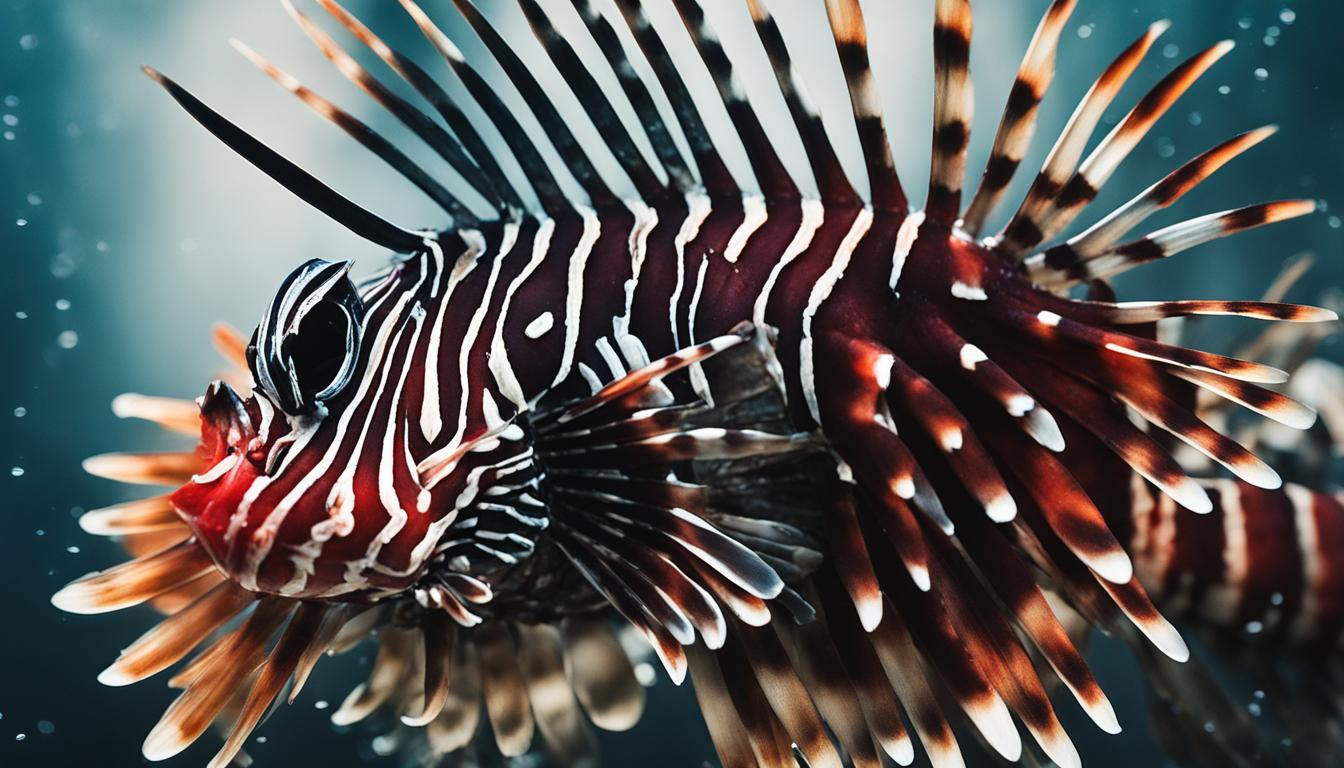

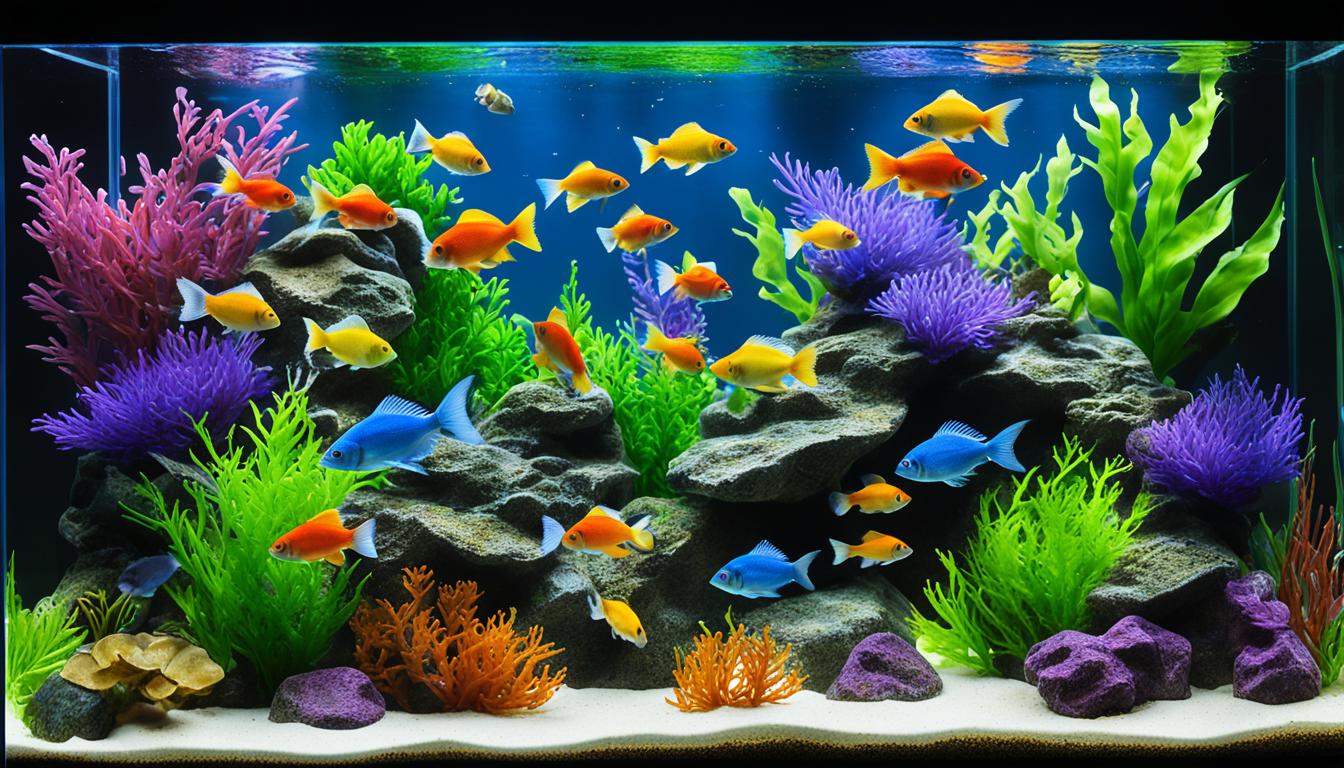


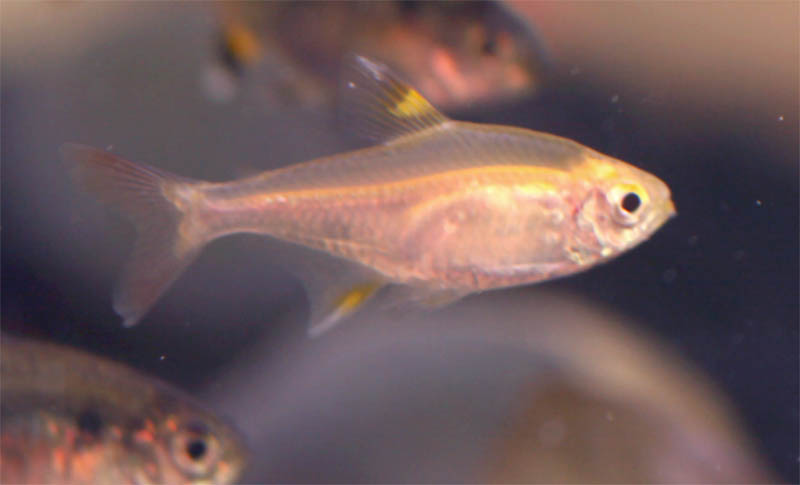
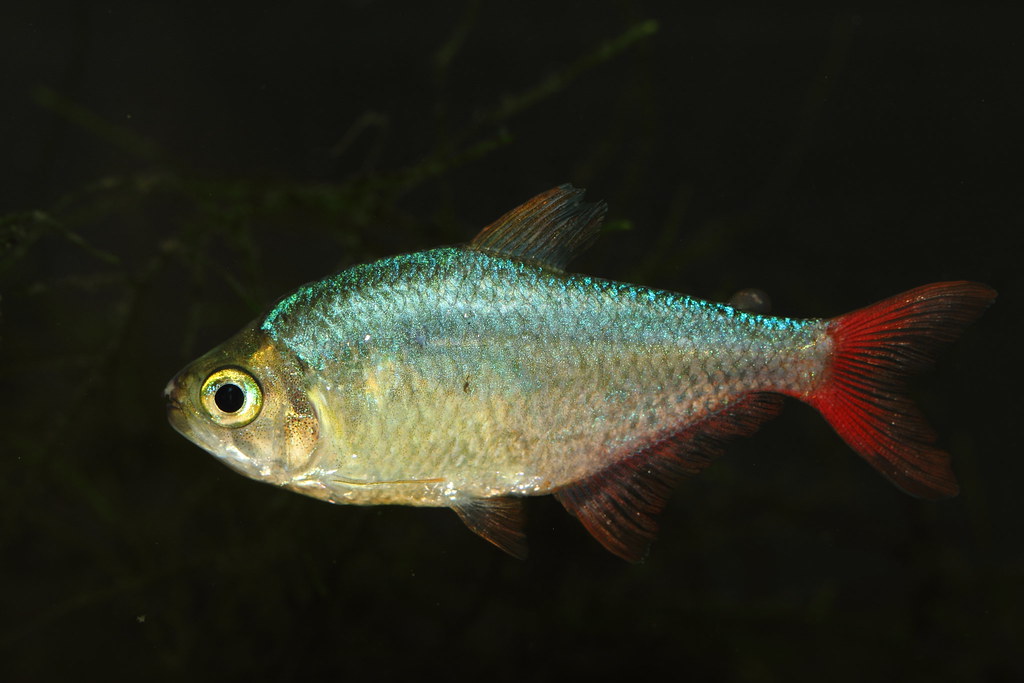
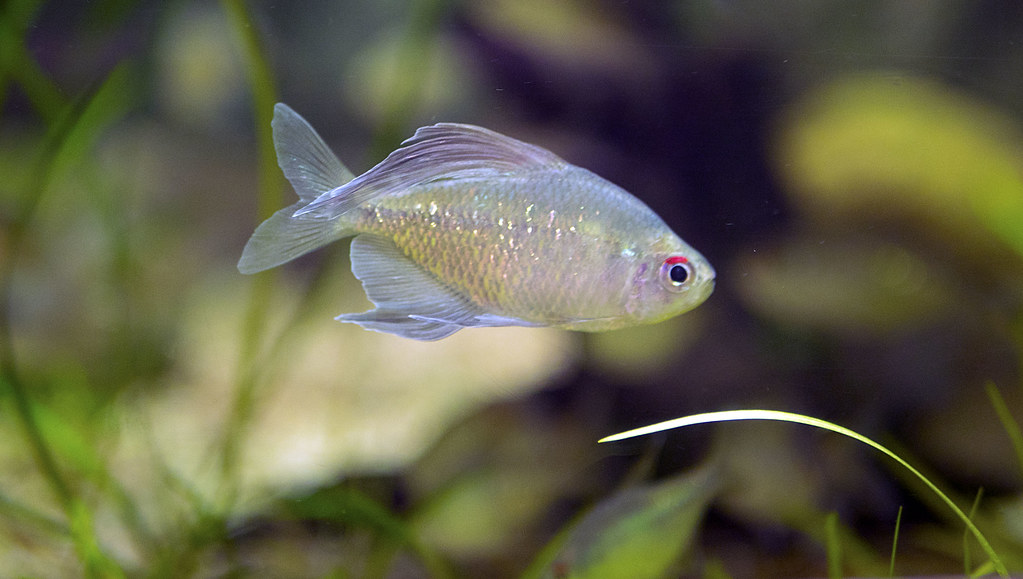
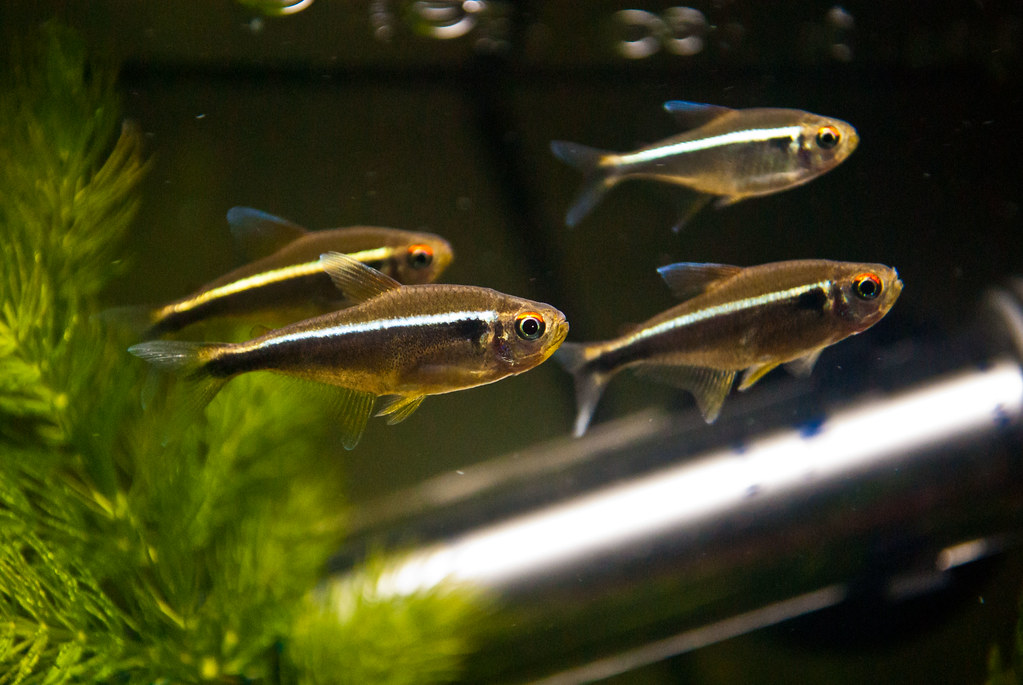
[…] Proper detection and identification of symptoms are essential for determining the need for treatment. […]
[…] These include common ailments like bacterial infections, parasites, and fungal infections. Prevention and treatment of these diseases are crucial to maintain the overall health of the […]